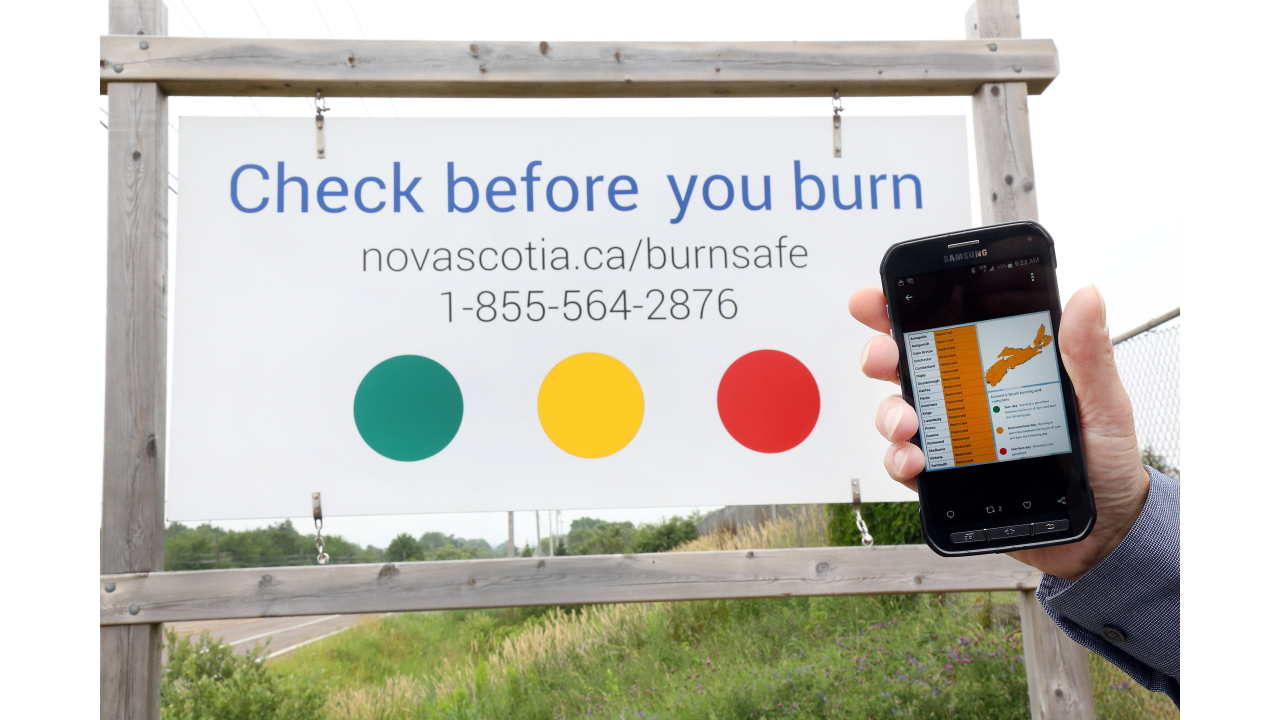Nova Scotians Reminded to Check Before They Burn

Nova Scotians should check the BurnSafe map to confirm whether burning is permitted in their area. (Communications Nova Scotia / File)
With temperatures getting warmer and conditions drier in many parts of the province, Nova Scotians are reminded to burn safely and only when permitted.
“With warm weather upon us, most Nova Scotians want to enjoy the weather outdoors. We ask people to do so safely, following provincial and municipal burn restrictions,” said Tory Rushton, Minister of Natural Resources and Renewables. “Wildfire prevention is everyone’s responsibility and burn restrictions are in place to protect everyone and everything around us. Please check the BurnSafe map online before you burn.”
The restrictions cover outdoor fires, including those in backyard burn pits, brush burning and campfires that are not in private, municipal, provincial or federal campgrounds with proper campfire facilities.
During wildfire season, burning is not permitted anywhere in the province between 8 a.m. and 2 p.m. because that is often when the risk of wildfires is greatest. Each day at 2 p.m., the provincial BurnSafe map is updated to show where and when burning is permitted:
- if a county is shown in green, burning is permitted after 2 p.m.
- if a county is shown in yellow, burning is permitted after 7 p.m.
- if a county is shown in red, burning is not permitted that day.
Daily burn restrictions are also available by recorded message on the toll-free phone line 1-855-564-2876 (BURN).
The safest time to burn is when temperatures are lower, humidity is higher and winds are calmer. Typically, this is in the evening and after or during rain, but people should always check the BurnSafe map to be sure.
Provincial burn restrictions are in effect from March 15 to October 15.
Quick Facts:
- residents should check municipal bylaws first before burning; rules may vary, and local bylaws take precedence over provincial restrictions
- weather, temperature and humidity data are collected daily from more than 30 stations across the province to calculate fire risk and determine burn restrictions
- industrial burning, which includes clearing agricultural land, clearing blueberry fields larger than two hectares or burning brush piles larger than two by three metres, requires a permit from the Department of Natural Resources and Renewable
- the 2023 wildfire season was the province’s worst on record – more than 25,000 hectares, or 250 square kilometres, of land was damaged in 220 wildfires, and more than 200 homes were destroyed
Additional Resources:
BurnSafe map: https://novascotia.ca/burnsafe/
Brush burning safety tips: https://novascotia.ca/natr/forestprotection/wildfire/firecentre/winterburn.asp
Campfire safety: https://novascotia.ca/campfire-safety/
What to do if a wildfire happens: https://novascotia.ca/natr/forestprotection/wildfire/firecentre/if-wildfire.asp
Nova Scotia wildfire statistics: https://novascotia.ca/natr/forestprotection/stats.asp
FireSmart Canada: https://firesmartcanada.ca/
Natural Resources and Renewables on X (formerly Twitter): https://twitter.com/NS_DNRR